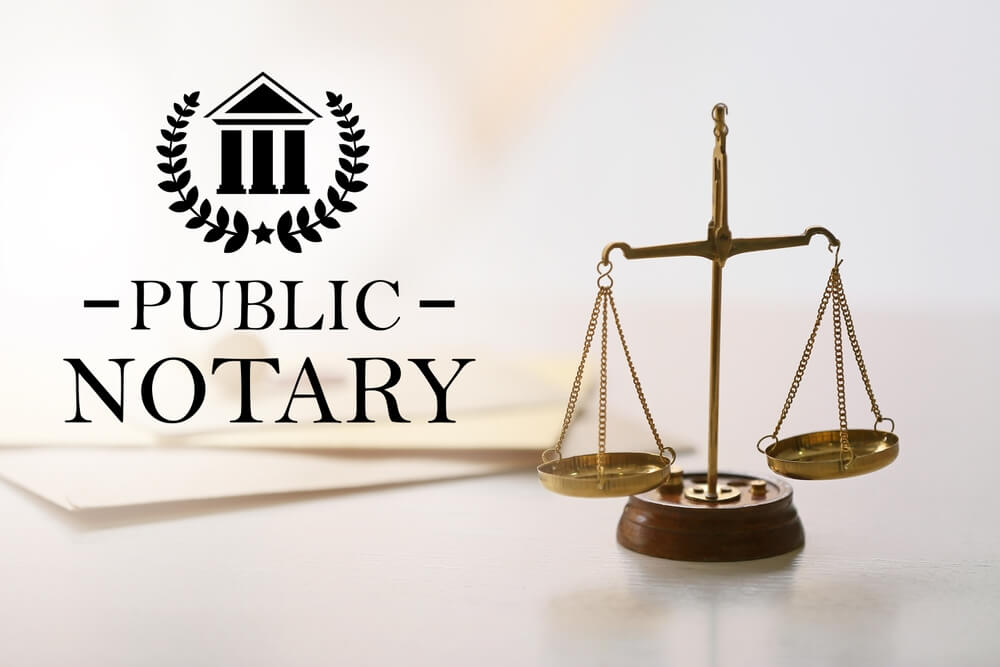Demystifying Notarial Job: Simplifying the Function and Importance of Notaries
In the intricate web of lawful documentation and verification, notaries stand as columns of assurance and credibility. Their role, often shrouded in enigma for numerous, brings considerable weight in making certain the validity and honesty of critical documents. As guardians of legality and fact, notaries play an essential part in our culture, yet their job is not constantly completely recognized. By deciphering the complexities losing and bordering notarial methods light on the importance of their acts, a clearer understanding arises of the essential role notaries play in promoting the material of lawful and contractual arrangements.
The Background of Notarial Work
The history of notarial job days back to ancient civilizations, where scribes played a vital duty in recording essential details and confirming papers. This led to the growth of notaries, individuals selected by the state to act as unbiased witnesses in legal matters.
Throughout the Middle Ages, notaries acquired prominence in Europe, with their functions broadening to consist of preparing legal records, licensing trademarks, and protecting documents. The increase of worldwide trade better highlighted the importance of notarial job in validating contracts and arrangements across borders.
In the modern-day period, notaries proceed to play a vital role in legal and service purchases by validating identities, validating the authenticity of records, and stopping fraud. Their role in accrediting the legitimacy of contracts includes a layer of protection and depend the ever-evolving landscape of business and legislation.

Duties and Obligations of Notaries
The historical evolution of notarial work from ancient human beings to the contemporary era has actually shaped the unique obligations and duties that notaries support in legal and organization purchases today. Notaries play an important role in confirming the authenticity of records and the identity of signatories. Among their main obligations is to witness the signing of crucial records, such as acts, agreements, and wills, to ensure that all events are becoming part of arrangements intentionally and voluntarily. Notaries likewise verify that notaries are of sound mind and not under pressure or browbeating.
Additionally, notaries are charged with providing oaths and affirmations, which are vital in lawful process and the implementation of testimonies. They license duplicates of initial documents, offering assurance to institutions that the copies are real reproductions of the originals. Notaries need to maintain exact documents of all deals they manage to make sure openness and responsibility. Overall, the duties and duties of notaries are necessary in securing the integrity and legitimacy of various records and purchases.
Notarial Certificates and Signatures
Exemplifying precise interest to detail, notarial certifications and signatures serve as important parts in validating the credibility of legal documents. Notarial certifications normally contain essential information such as the day of registration, the names of the notaries, a summary of the paper, and the notary's main seal. These certificates offer a clear record of the notarial act, ensuring that the record can be quickly identified and traced back to the notary that supervised the process.
Signatures play a critical function in notarial work, as they represent the contract and approval of the events entailed. Notaries thoroughly witness the signing of files to verify the identification of the signatories and verify that they are authorizing of their own free choice. By affixing their main seal and Get More Information signature to the document, notaries license that the essential treatments have been followed which the file is enforceable and legitimate.
Basically, notarial certifications and signatures are the trademark of credibility in legal deals, supplying assurance to all parties included that the files are legitimate and binding.
Importance of Notarial Acts
Registration Process Clarified
Describing the registration process gives clarity on the crucial actions associated with confirming lawful papers. The notarization process generally starts with the individual providing the paper to a notary public. The notary after that verifies the endorser's identification through acceptable identification methods. As soon as the identification is confirmed, the notary makes sure that try these out the individual authorizing the file does so willingly and with no browbeating.

Conclusion

Notarial certifications typically contain crucial info such as the day of notarization, the names of the notaries, a summary of the file, and the notary's official seal. These certificates supply a clear document of the notarial act, making certain that the record can be conveniently recognized and traced back to the notary that supervised the process.
By affixing their official seal and trademark to the paper, notaries accredit that the needed treatments have been complied with and that the paper is enforceable and valid.
By validating the identification of the signatories, confirming their readiness to enter into the agreement, and licensing the day and place of the finalizing, notaries play a crucial function in upholding the legitimacy of lawful papers.After the record is signed, the notary will certainly attach their official seal anonymous or stamp onto the record.